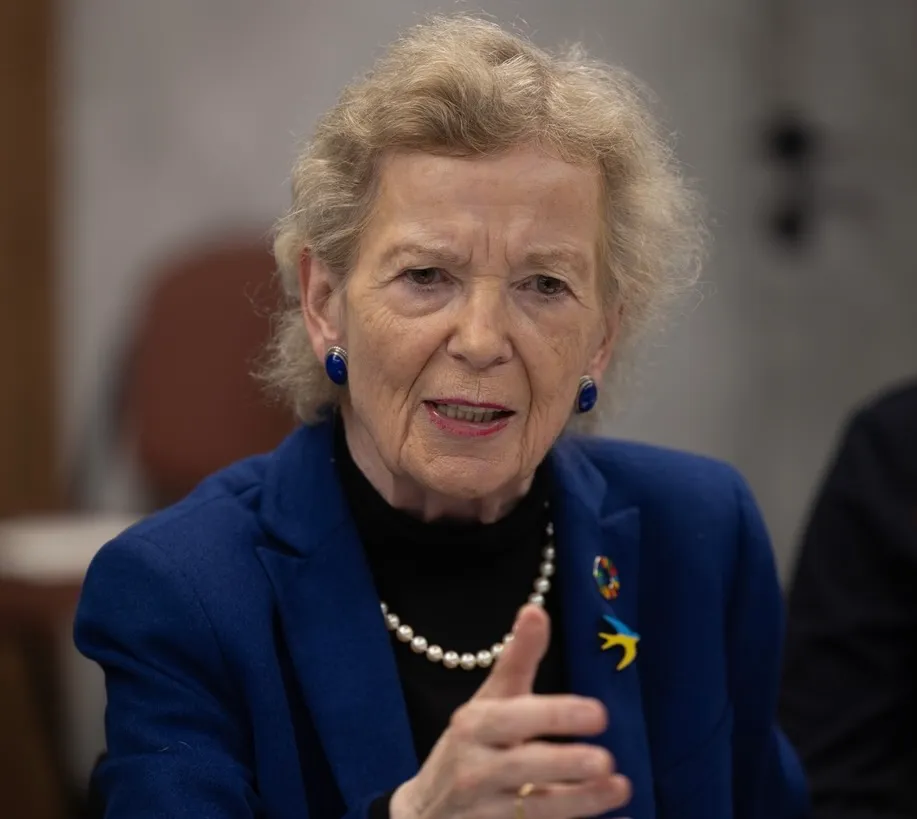Leading With Regeneration


These are women who refuse to separate ambition from ethics, aesthetics from action, and fashion from the future. They are innovators, activists, and entrepreneurs who understand that true influence comes from action, not appearance – and yet, they do it all with unmistakable poise and vision. They define Modern Womanhood through the measurable difference they make in communities, ecosystems, and industries.
At the forefront is Vanessa Nakate, whose work for climate justice in Africa has earned her international recognition. Nakate’s activism is not performative; it is rooted in tangible outcomes. She founded the Rise Up Climate Movement, which supports grassroots African climate organizations and ensures that funding, policy attention, and media focus reach those most affected by environmental inequity. In 2024, Nakate led campaigns that influenced national climate adaptation programs in Uganda and collaborated with renewable energy start-ups to expand solar access in rural communities. Her approach embodies a philosophy central to regenerative leadership: invest in systems, not optics.

In the realm of sustainable fashion, Livia Firth continues to bridge luxury and ethics. Through her Eco-Age consultancy, Firth advises brands to reengineer supply chains for circularity, transparency, and environmental stewardship. In 2025, she helped launch a Regenerative Fashion Index, which measures not only carbon footprints but soil health, water regeneration, and biodiversity impact across textile production. Firth’s work demonstrates that style and sustainability are not opposites; they are synergistic. Vogue-style editorials and global campaigns now showcase not only the garments but the regenerative practices behind them, turning fashion spreads into advocacy platforms.
Meanwhile, Leah Thomas, a prominent environmentalist and founder of Intersectional Environmentalist, has amplified the dialogue around inclusive climate action. Her focus is on ensuring that historically marginalized communities are not only protected but empowered through regenerative economic opportunities. In 2024, Thomas collaborated with city governments in the United States to design green workforce programs that combine job training in renewable energy with climate literacy initiatives. Her work exemplifies how social equity and ecological resilience are inseparable components of modern leadership.

Across oceans, Emily Penn navigates the intersection of ocean conservation and regenerative entrepreneurship. Founder of eXXpedition, Penn leads women-only expeditions to collect oceanic data while developing solutions to the global plastic crisis. In 2025, her teams deployed innovative bio-based materials derived from seaweed, demonstrating that oceans themselves can provide scalable regenerative resources when science and creativity converge. Penn’s leadership underscores the tangible side of impact: every expedition is both a research initiative and a visual narrative of what it means to engage with nature responsibly.
Generational wisdom also informs modern impact. Mary Robinson, former President of Ireland and a long-time champion of climate justice, continues to influence policy and finance. In 2024, her work with the Trócaire Foundationemphasized climate-resilient agriculture in Sub-Saharan Africa, combining microfinance with climate adaptation knowledge. Robinson’s presence is a reminder that regenerative leadership spans ages: it is as much about strategic patience and coalition-building as it is about innovation and visibility.

Finally, Christiana Figueres, former Executive Secretary of the UN Framework Convention on Climate Change, has become a central figure in translating policy into action. Figueres spearheaded initiatives to align impact investing with the Paris Agreement targets, guiding venture funds toward measurable decarbonization projects. Her approach illustrates that regenerative leadership is methodical, evidence-based, and auditable, ensuring that capital not only flows but transforms.
What unites these women is a shared philosophy: regeneration is both a lens and a practice. It is measured not by recognition, but by real-world transformation – whether it is carbon sequestered, ecosystems restored, or communities empowered. Each project, campaign, and investment is curated with care, ensuring that every action contributes to systemic change rather than symbolic gestures. The aesthetic dimension of their work is equally compelling. In photo essays and media features, Nakate, Firth, Thomas, Penn, Robinson, and Figueres are depicted not only as leaders but as embodiments of their missions. Elegant yet grounded, stylish yet purposeful, they make visible the intimate link between vision and action. Their public image is a reflection of their methodology: clarity, intentionality, and authenticity.
For readers seeking inspiration, these women redefine ambition. Modern Womanhood is not about compromise but about coherence. It is about demanding that work, lifestyle, and investments align with values. It is about proving that regeneration is not an abstract ideal but a strategic framework that drives measurable outcomes. In a world of fleeting headlines and performative campaigns, their leadership is a quiet revolution: visible in results, felt in influence, and admired for integrity. As 2025 unfolds, the agenda is clear. Regenerative impact is no longer niche; it is mainstreamed by women whose style and strategy intersect. They challenge the traditional metrics of success, proving that elegance can coexist with efficacy, and that purpose can be as compelling as profit. The legacy they are building is a new blueprint for leadership: one in which Modern Womanhood is synonymous with stewardship, resilience, and measurable impact.
The story is ongoing, but the message resonates: women leading with regeneration are not waiting for permission – they are shaping the future, proving that influence and integrity are not mutually exclusive, and that true style emerges from the courage to act boldly and wisely in the service of both people and planet.